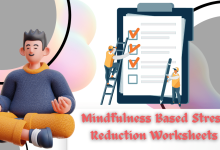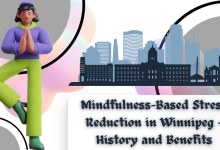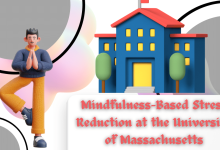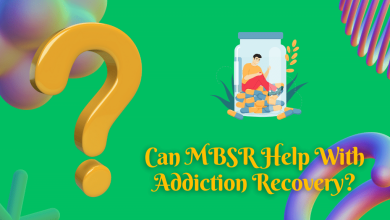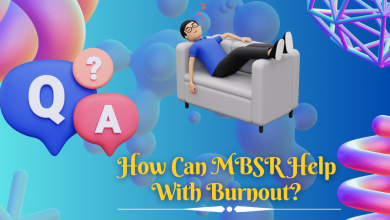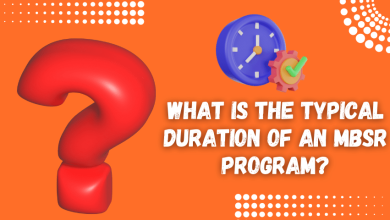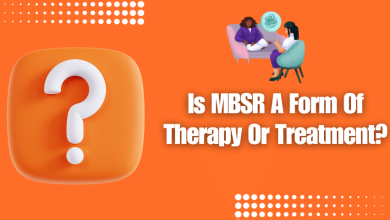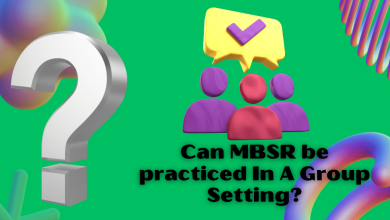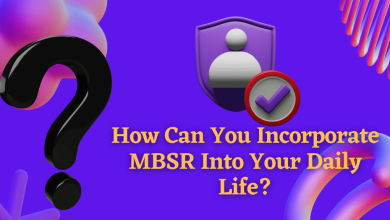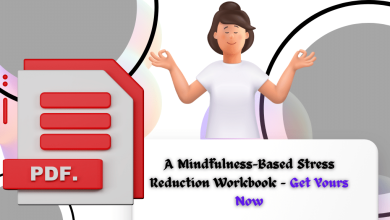Mindfulness Based Stress Reduction Training
Mindfulness-Based Stress Reduction Training (MBSR) is a form of meditation and mind-body therapy designed to reduce stress, and anxiety, and improve overall well-being.
MBSR is developed by Dr. Jon Kabat-Zinn in 1979 at the University of Massachusetts Medical School, MBSR has been shown to be effective in reducing stress-related symptoms and improving overall health and well-being.
Now let’s define MBSR.
Definition of Mindfulness-Based Stress Reduction Training
MBSR is a structured eight-week program that teaches participants how to cultivate mindfulness, which is the practice of paying attention to the present moment without judgment.
This training involves a combination of mindfulness meditation practices, such as body scan meditation, mindful breathing, and mindful movement (e.g. yoga), as well as psychoeducation and group discussion.
History And Development Of MBSR
Dr. Kabat-Zinn developed MBSR as a response to the growing need for effective stress reduction techniques.
The program draws from the Buddhist tradition of mindfulness meditation and incorporates elements of cognitive-behavioral therapy (CBT) and yoga.
Since its development, MBSR has been widely adopted in medical and mental health settings as a complementary therapy for a variety of conditions.
That’s that.
Let’s move on.
Benefits Of MBSR Training
MBSR has been shown to have numerous benefits for mental and physical health. Below are some of the key benefits of MBSR training:
1. Reducing Stress and Anxiety
Stress and anxiety are common experiences that can have negative impacts on mental and physical health.
MBSR has been shown to reduce symptoms of stress and anxiety by increasing awareness of thoughts, emotions, and physical sensations.
Furthermore, this awareness helps individuals to better manage their stressors and develop coping strategies.
2. Improving Emotional Regulation
Emotional regulation refers to the ability to manage and respond to emotions in a healthy way.
MBSR has been shown to improve emotional regulation by helping individuals to develop a greater sense of awareness and acceptance of their emotions.
This increased awareness can help individuals to respond to their emotions in a more adaptive way.
3. Enhancing Cognitive Functioning
MBSR has been shown to enhance cognitive functioning by improving attention, memory, and executive functioning.
These improvements are thought to result from the increased attentional control and cognitive flexibility that is developed through mindfulness practice.
4. Boosting Immune System
MBSR has been shown to boost the immune system by reducing inflammation and enhancing the immune response.
These effects are thought to result from the stress-reducing effects of mindfulness practice.
Components of MBSR Training
MBSR is comprised of several key components that are designed to cultivate mindfulness and reduce stress.
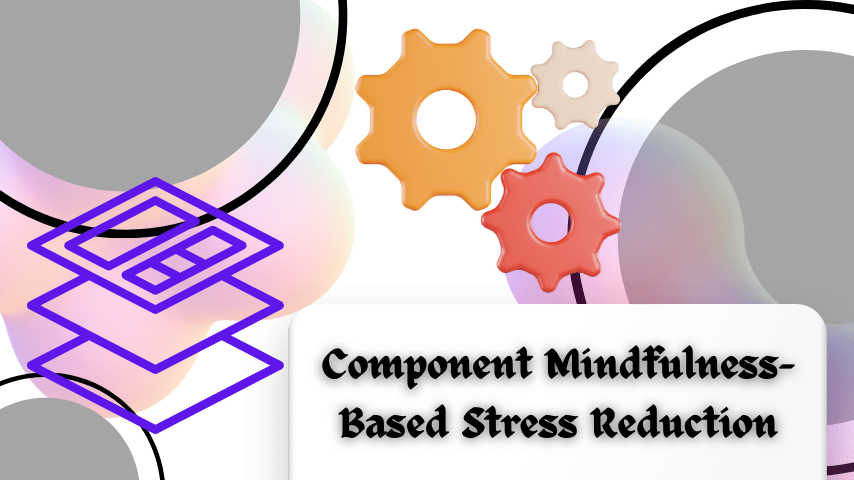
Below are some of the main components of MBSR Training
1. Mindful Breathing
Mindful breathing involves focusing attention on the breath and observing the sensations of the breath without judgment.
This practice can help to calm the mind and reduce stress.
2. Body Scan Meditation
Body scan meditation involves systematically bringing awareness to different parts of the body, from the toes to the head.
This practice can help to cultivate a greater sense of body awareness and reduce tension.
3. Mindful Movement (e.g. Yoga)
Mindful movement practices, such as yoga or tai chi, involve moving the body with awareness and intention.
These practices can help to reduce stress and promote relaxation.
4. Loving-Kindness Meditation
Loving-kindness meditation involves cultivating feelings of love, kindness, and compassion toward oneself and others.
This practice can help to improve mood and enhance social connections.
5. Mindful Communication
Mindful communication involves bringing mindful awareness to the way we communicate with others.
This involves being fully present and attentive to the conversation, listening actively, and responding in a non-judgmental and compassionate way.
How To Practice MBSR
While MBSR is typically taught in a structured eight-week program, there are also ways to practice mindfulness and incorporate MBSR principles into daily life.
Here are some tips for practicing MBSR:
1. Finding a Qualified Instructor
To get the most out of MBSR, it’s important to work with a qualified instructor who has experience teaching mindfulness and MBSR.
Look for instructors who have completed an MBSR teacher training program and who have regular mindfulness practice themselves.
2. Participating In A Structured MBSR Program
While it’s possible to practice mindfulness on your own, participating in a structured MBSR program can provide more support and guidance.
Look for MBSR programs in your community or online.
3. Incorporating MBSR into Daily Life
In addition to participating in a structured MBSR program, it’s important to incorporate mindfulness into daily life.
This can involve taking brief mindfulness breaks throughout the day, practicing mindful breathing during stressful situations, or incorporating mindful movement practices into your exercise routine.
Scientific Evidence for MBSR
There is a growing body of scientific research supporting the effectiveness of MBSR for a variety of conditions.
Here are some key findings from the research
1. Studies on MBSR and Stress Reduction
Numerous studies have shown that MBSR can be effective in reducing symptoms of stress, anxiety, and depression.
For example, a study published in the Journal of Consulting and Clinical Psychology found that MBSR was more effective than a control group in reducing symptoms of anxiety and depression in adults with generalized anxiety disorder.
2. Studies On MBSR and Anxiety
MBSR has been shown to be effective in reducing symptoms of anxiety in a variety of populations.
For example, a study published in the Journal of Clinical Psychology found that MBSR was effective in reducing symptoms of anxiety in individuals with social anxiety disorder.
3. Studies On MBSR and Depression
MBSR has also been shown to be effective in reducing symptoms of depression in a variety of populations.
For example, a study published in the Archives of Internal Medicine found that MBSR was more effective than a control group in reducing symptoms of depression in adults with chronic medical illness.
4. Studies on MBSR and Chronic Pain
MBSR has been shown to be effective in reducing symptoms of chronic pain.
For example, a study published in the Journal of Pain found that MBSR was effective in reducing symptoms of chronic low back pain.
Conclusion
MBSR is a valuable tool for reducing stress and improving overall well-being.
By cultivating mindfulness through practices such as meditation and mindful movement, individuals can develop a greater sense of awareness, regulate their emotions, and enhance their cognitive functioning.
While MBSR is typically taught in a structured program, it’s also possible to incorporate mindfulness into daily life.
The growing body of scientific research on MBSR supports its effectiveness for a variety of conditions, including anxiety, depression, and chronic pain.
